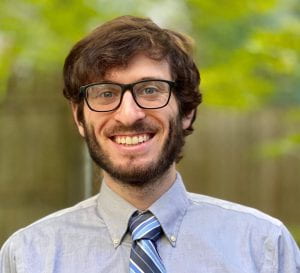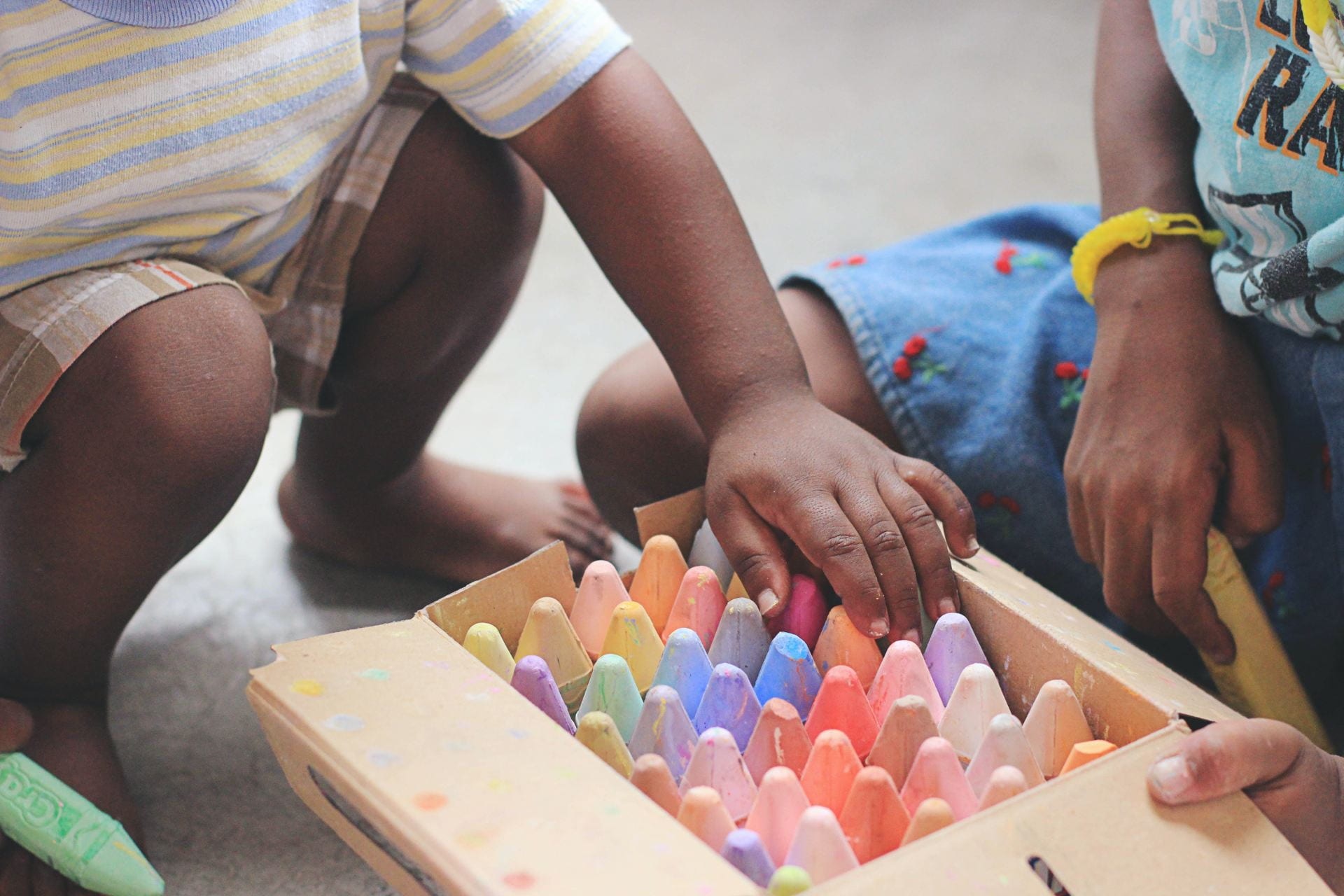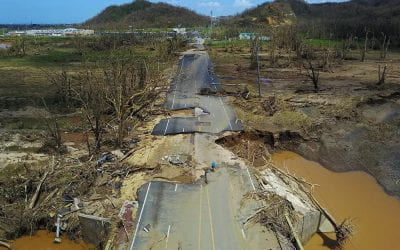
About the Author
Charley Kenyon holds an Ed.M. from Harvard Graduate School of Education, where he graduated as part of the International Education Policy program. He was a Fulbright Scholar in Argentina and has taught history in the United States. He is passionate about sci-fi, hiking, and all things fútbol.
This project was also completed in collaboration with Claire Chadwick, Emily Fingerle and Mary Nagel.
Resiliency in Uncertainty
Primary Education in Belize during Covid-19
As the Covid-19 pandemic raged across the globe, educators and policy makers were put in the position of making difficult decisions based on little information. As a student in Fernando Reimers’ class Education Policy Analysis and Research in Comparative Perspective (A801), I had the opportunity, alongside my classmates, to research various responses to the pandemic and consult for a decision-making body.
I worked alongside three other classmates with the Ministry of Education of Belize to support the continuity of primary school education during school closures due to the Covid-19 pandemic. We began this work in September 2020 and completed our consultancy in December of that same year. In addition to presenting our analysis to the Ministry of Education of Belize and the teaching team of A801, we also presented to the incoming Chief Education Officer of Belize and representatives of UNICEF Belize. It is our hope that our analysis proved useful to these decisionmakers as they continue to navigate the changing landscape of education.

Photo by Meritt Thomas on Unsplash
Like most education systems around the world, schools in Belize closed for in-person instruction in late March of 2020 due to the outbreak of the Covid-19 pandemic. While secondary and tertiary institutions were able to receive devices (such as laptops or cellphones) from the Ministry of Education, there was insufficient funding at the start of the pandemic to provide such devices critical for supporting distance learning to all grade levels. Additionally, at least one out of every three households in Belize do not have access to the internet, which meant that any technology-enabled distance learning initiative had the potential to leave out a significant portion of Belizean students. To address these equity issues, the Ministry of Education decided to implement printed learning packages to maintain educational continuity for primary school students during the Covid-19 pandemic. On top of the closure caused by Covid-19, Belize is also prone to natural disasters. A severe flood in November 2020 temporarily disrupted the Ministry’s ability to respond to the Covid-19 pandemic.
During this consultancy process, we met with a team of Belizean educators via Zoom to learn about the on-the-ground context of Belize’s education system and current response toward mitigating learning loss. The printed learning packets had low student completion rates and the Ministry was concerned about the lack of engagement many primary school-aged students appeared to show in regard to their schoolwork.
Through a focus group with Belizean educators, along with additional research, we came to believe that the disruption of daily routines, social isolation and vulnerable socioeconomic conditions would all have long term effects on teaching and learning in Belize. Given the limited types of interventions currently available to the Ministry of Education, we believed that focusing on social emotional learning (SEL) could be a key point of intervention to promote re-engagement and continued learning for primary school students in Belize.
Based on an exhaustive literature review of social-emotional learning, we identified three key themes that could help students cope with the ongoing crisis, be more engaged in school, and subsequently, produce stronger academic performances. Supporting emotional resiliency in students, building strong teacher student relationships and promoting teachers’ own emotional resiliency were the three most important steps to be taken, we recommended.

Photo by Claude Piché on Unsplash
Our next steps involved a combination of meetings with ministry officials, focus groups with Belizean educators, and surveys sent to nearly 200 teachers, which allowed us to collect data to inform our understanding of the state of social emotional learning in Belize during Covid-19.
After reviewing our survey data, we developed four policy recommendations for the Ministry of Education to consider, each based on the criterion of relevance, equality, cost and timeframe. These criterion were decided based on importance to the Ministry and the necessity imposed by the Covid-19 pandemic.
Ultimately, we crafted our set of recommendations based on mitigating learning loss while the pandemic still raged and on strengthening the education system during post-pandemic recovery. At the heart of our recommendations was the need to focus on the whole of child, meaning that students were being supported academically, socially and emotionally while also focusing on the whole of teacher, meaning that teachers were also supported professionally, socially and emotionally. Without such a holistic approach, the trauma and isolation caused by the Covid-19 pandemic could continue to affect learning even after a return to “normal.”
To mitigate learning loss in the moment, we suggested that the Ministry create an SEL guide for teachers, complete with advice on how to integrate SEL into lessons for all learning environments, in-person and at-home. We also recommended the Ministry develop in-service training on SEL for teachers, to give teachers the necessary knowledge and skills to feel equipped to bring SEL into their lessons.
While these actions have the potential to play a key role in mitigating learning loss, the need to ensure students are supported socially and emotionally will remain post-pandemic. Therefore, we proposed integrating SEL goals into the national curriculum, to ensure its importance is formally recognized by the Belizean education system. We also recommended that the Ministry incorporate SEL into teacher pre-service training to increase teacher knowledge and capacity around SEL. This would prepare teachers to better support students in the event of any trauma in their life. With school closures due to natural disasters a part of life in Belize, this investment would help the education system in the long-term as it navigates such future closures or other incidents that affect student learning.
While it was no guarantee that our policy recommendations would be implemented, we took the positive receptions from the incoming Chief Education Officer and the representatives from UNICEF Belize as a testament to the feasibility and necessity for education policy in Belize to take on SEL within its purview.

Photo by Tina Floersch on Unsplash
It was a remarkable experience to be a part of this project and to have the opportunity to work with such an incredible team of like-minded individuals dedicated to supporting students around the world. Throughout this process, I was struck by how much we were able to accomplish in just four months. Before joining the international education policy program at HGSE, I had no formal experience working within education policy. Thanks to this program, I was able to intimately learn the level of details involved in passing new policy, from the initial research and data collection to deciding the appropriate factors to weigh an analysis, and how to consider the various stakeholders involved in a particular policy recommendation. I learned that research alone is not enough to build policy. Support on the ground and sufficient funding are essential factors for any initiative and will often impact the direction of policy far more than research can.
I also learned the importance of decision makers to be able to think about how solutions to current problems can help solve or mitigate problems in the future. In the context of Belize, it was how lessons learned from school closures during the pandemic can also be applied to school closures from natural disasters. In the larger context of the class and other group projects, it was how solutions to a problem in one country might be found in the initiatives of another. We found promising SEL initiatives taking place all over the globe, from Turkey to New Zealand to Uruguay. While these systems varied widely from Belize’s context, these initiatives offered a promising starting place to ensure Belize did not need to reinvent the wheel when it came to SEL instruction during Covid.
There were no easy decisions for education policymakers to make this past year and this experience underscored how difficult it can be to act in an ever-evolving situation such as the Covid-19 pandemic. With everything the pandemic has taken from us, it has also given us the necessity to think about how we can change systems to better support students in all situations, not just in times of crisis. It is my hope that our findings have proven useful for Belize, even as the situation with the pandemic continues to evolve. This experience has given me a set of skills around problem solving and collaboration that I will use and build upon as I re-enter the education workforce in this new landscape, determined to ensure that we are all better prepared to support the whole of child, for all children.
The complete findings of our consultancy can be found in chapter 3 of An educational calamity: Learning and teaching during the COVID-19 pandemic, along with chapters from my colleagues about the work in countries from Guatemala, Mexico, and Bangladesh, among others.
More Student Views
Climbing the Tepozteco: Meditations on Mexico
English + Español
With sweat trickling down my forehead, I meditated on the question: What does motivation look like?
Cultivating Resilience in Puerto Rico: Harvesting Fields of Change
As a born and raised Puerto Rican, my journey has always been intertwined with my homeland’s vibrant hues and resilient spirit.
Los Vuelos de La Muerte: Forced Disappearance in Mexico
The first time I heard the word desaparecido—disappeared, a missing person— was in my high school Spanish class as we learned about the Dirty War in Argentina.




